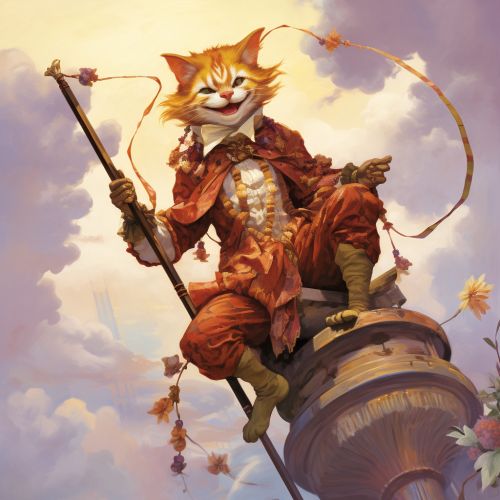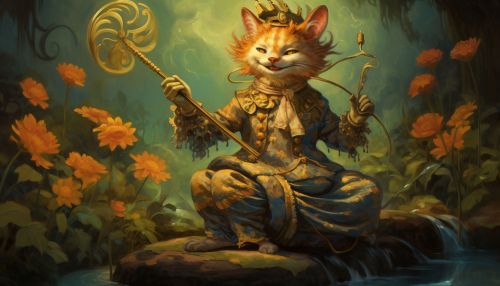Trickster god
Overview
A Trickster god is a deity or supernatural being in mythology who plays tricks or otherwise disobeys normal rules and conventional behavior. Trickster gods are a common feature in the mythologies of many cultures around the world. They are often associated with chaos, mischief, and change, and are known for their cunning and deceitful behavior.


Characteristics
Trickster gods are typically characterized by their intelligence, wit, and cunning. They are often depicted as being able to shape-shift, allowing them to deceive others and cause chaos. They are also known for their ability to break the rules, challenge the status quo, and disrupt the natural order of things. Despite their often disruptive behavior, trickster gods are not necessarily evil. In many cases, they are seen as necessary forces of change and transformation in the world.
Role in Mythology
In mythology, trickster gods often serve a dual role. On one hand, they are agents of chaos, disrupting the established order and breaking the rules. On the other hand, they are often seen as benefactors, using their cunning and deceit to help humans or other gods. They often play the role of a catalyst in myths, instigating events and causing change.
Examples of Trickster Gods
Loki
Perhaps one of the most well-known trickster gods is Loki, from Norse mythology. Loki is a complex character who is often depicted as a schemer and a manipulator. He is known for his cunning and deceit, and is often at odds with the other gods. Despite his disruptive behavior, Loki is also seen as a necessary force of change in the Norse pantheon.
Anansi
In West African and Caribbean folklore, the spider god Anansi is a prominent trickster figure. Anansi is known for his intelligence and wit, and is often depicted outsmarting other gods or creatures. His stories are often used to teach lessons about the consequences of deceit and trickery.
Coyote
In many Native American cultures, the Coyote is a significant trickster figure. The Coyote is often portrayed as a cunning and clever creature, who uses his wits to outsmart others. Despite his trickster nature, the Coyote is also seen as a culture hero, who uses his cunning to benefit humans.
Cultural Significance
Trickster gods hold a significant place in the mythology of many cultures. They are often seen as symbols of change and transformation, representing the chaotic and unpredictable nature of life. Despite their often disruptive behavior, trickster gods are also seen as necessary forces of change, challenging the status quo and breaking the rules to bring about new ways of thinking and being.
